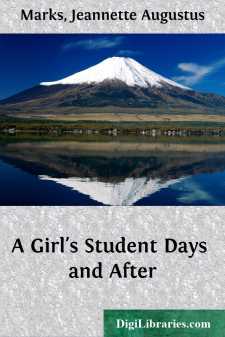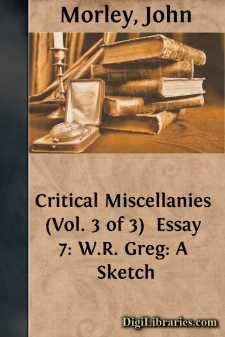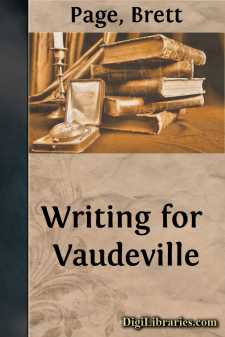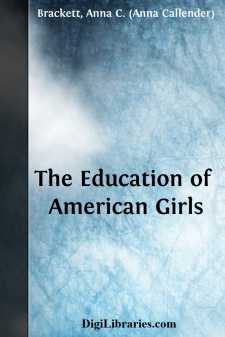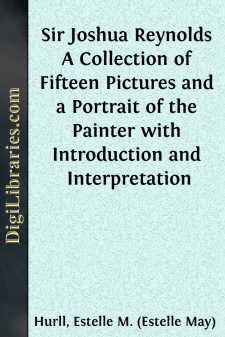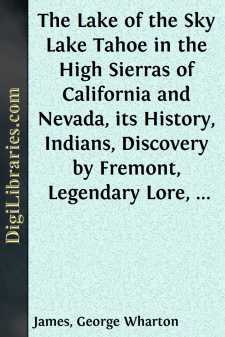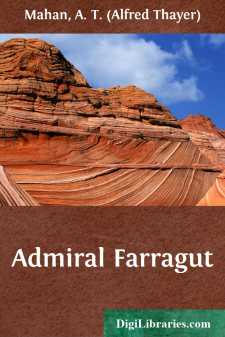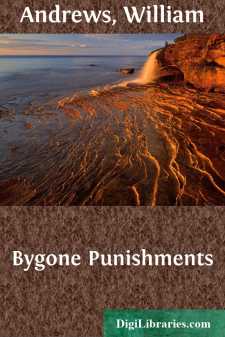Non-Classifiable
- Non-Classifiable 1768
Non-Classifiable Books
Sort by:
A Word to the Wise We train for basket-ball, golf, tennis or for whatever sport we have the most liking. Is there any reason why we should not use the same intelligence in the approach to our general school life? Is there any reason why we should make an obstacle race, however good and amusing exercise that may be, out of all our school life? We don't expect to win a game with a sprained wrist or...
more...
by:
John Morley
W. R. GREG: A SKETCH. It is perhaps a little hard to undertake to write about the personality of a thinker whose ideas one does not share, and whose reading of the events and tendencies of our time was in most respects directly opposite to one's own. But literature is neutral ground. Character is more than opinion. Here we may forget the loud cries and sounding strokes, the watchwords and the...
more...
by:
Brett Page
CHAPTER I THE WHY OF THE VAUDEVILLE ACT 1. The Rise of Vaudeville A French workman who lived in the Valley of the Vire in the fourteenth or fifteenth century, is said to be vaudeville's grandparent. Of course, the child of his brain bears not even a remote resemblance to its descendant of to-day, yet the line is unbroken and the relationship clearer than many of the family trees of the royal...
more...
In the social organization of the Wyandots four groups are recognized—the family, the gens, the phratry, and the tribe. THE FAMILY. The family, as the term is here used, is nearly synonymous with the household. It is composed of the persons who occupy one lodge, or, in their permanent wigwams, one section of a communal dwelling. These permanent dwellings are constructed in an oblong form, of poles...
more...
PREFACE. The Table of Contents sufficiently indicates the purpose and aim of this book. The essays are the thoughts of American women, of wide and varied experience, both professional and otherwise; no one writer being responsible for the work of another. The connecting link is the common interest. Some of the names need no introduction. The author of Essay IV. has had an unusually long and varied...
more...
I. ON THE ART OF REYNOLDS The name of Sir Joshua Reynolds holds a place of honor among the world's great portrait painters. To appreciate fully his originative power one must understand the disadvantages under which he worked. His technical training was of the meagrest kind, and all his life he was hampered by ignorance of anatomy. But on the other hand he combined all those peculiar qualities of...
more...
EXPLANATION The principal abbreviations used in these pages are: b. standing for born.m. standing for married.d. standing for died.y. standing for young. For convenience and distinction, as in all genealogical works, each name is given a number separately. Without this it would be difficult to tell which Joshua Stephens is meant, for there are many of that name, as also others. The numbers are also...
more...
INTRODUCTION California is proving itself more and more the wonderland of the United States. Its hosts of annual visitors are increasing with marvelous rapidity; its population is growing by accretions from the other states faster than any other section in the civilized world. The reasons are not far to seek. They may be summarized in five words, viz., climate, topography, healthfulness, productiveness...
more...
CHAPTER I. FAMILY AND EARLY LIFE. 1801-1811. The father of Admiral Farragut, George Farragut, was of unmixed Spanish descent, having been born on the 29th of September, 1755, in the island of Minorca, one of the Balearic group, where the family had been prominent for centuries. One of his ancestors, Don Pedro Ferragut, served with great distinction under James I, King of Aragon, in the wars against the...
more...
by:
William Andrews
Hanging. he usual mode of capital punishment in England for many centuries has been, and still is, hanging. Other means of execution have been exercised, but none have been so general as death at the hands of the hangman. In the Middle Ages every town, abbey, and nearly all the more important manorial lords had the right of hanging, and the gallows was to be seen almost everywhere. Representatives of...
more...


